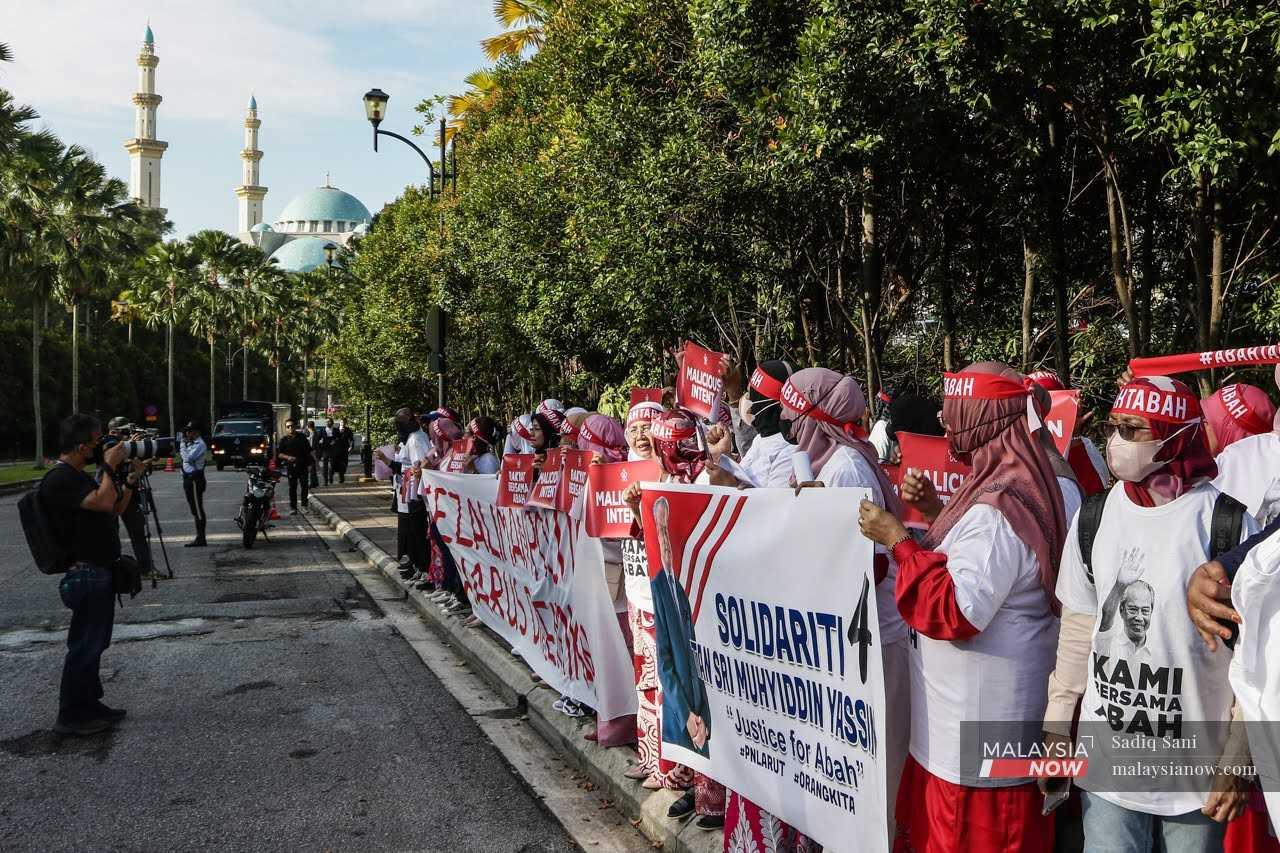Troubling questions over Muhyiddin's graft charges
For someone who has for decades cried foul about selective prosecution, it is hoped that Anwar Ibrahim is not resorting to the same.
Just In
We have done it again. After Najib Razak, another former prime minister has been hauled to court on corruption charges. This morning, Muhyiddin Yassin was charged at the Sessions Court with corruption.
But unlike Najib, who is tainted by the 1MDB scandal that has gained global notoriety, there are troubling questions over the charges against Muhyiddin.
First, let's look at the charges. Muhyiddin was accused of receiving illegal funds. They could be over the JanaWibawa programme when he was the prime minister. Muhyiddin had said that the approval of the projects was never under his purview but under that of the finance ministry.
Another charge was over his government's decision to grant tax exemption to a charitable foundation run by a tycoon. Again, Muhyiddin said that the approval was made at the finance ministry, not by him.
These logic-defying decisions bring to mind the second, and more troubling question: Is Muhyiddin a victim of selective prosecution? Supporters of the Bersatu president think so and it's not hard to see why. Muhyiddin was hauled to court merely days after PAS president Abdul Hadi Awang warned the prime minister that the latter's brittle coalition could fall at any time.
The Marang MP's warning is not without basis. Perikatan Nasional (PN) has 74 seats in the Dewan Rakyat to 82 from Pakatan Harapan (PH). The Anwar Ibrahim administration is only held together with the backing of BN (30 MPs), GPS (23), GRS (six) and a few other smaller parties.
Many of the parties in the federal ruling coalition have been at loggerheads for decades, such as left-leaning Chinese-dominated DAP and right-wing Malay nationalist Umno. It would not be a stretch to say that the alliance is only glued together by myopic self-preservation.
On the ground, voters are already put off by the political acrobatics that have become more and more outrageous by the day. For example, Umno voters are stumped that the party's leaders are now as thick as thieves with DAP top guns who were villified before this. The reverse is also true.
The voters are no longer ingesting the drivel by the PH-BN apologists to justify propping up this alliance of strange bedfellows. Many are seething with anger, and their stomachs are churning with disgust over such shameless and callous political expediency.
On top of that, Anwar's performance in his first 100 days is, at best, dismal. Appointing corruption-tainted Ahmad Zahid Hamidi as a deputy prime minister and the short-lived appointment of his daughter as an economic adviser are among the decisions that have tarnished the prime minister's so-called reformist credentials.
This is why the PH-BN alliance is at risk of a brutal rout when elections are held in six states, expected from June this year.
It is not hard to see why many buy the narrative about Anwar wanting to stem the tide of PN's rise ahead of the state polls. An embarrassing defeat for PH-BN could herald the break-up of the alliance as component parties jettison their political liabilities and seek new realignments to secure their future.
Anwar would not only go down in history as the longest prime minister-in-waiting but possibly the prime minister with the shortest tenure.
The argument about Anwar wanting to clip the wings of PN is corroborated by how his administration, even from the start of his tenure, threw shade at PN about alleged corruption during Muhyiddin's time. Initially, the allegation about lapses in government funds was to the tune of RM600 billion, before shrinking to RM530 billion, then to RM92.5 billion and finally to RM300 million which allegedly went into Bersatu's accounts. Why couldn't the PH-BN government get its figures straight?
Before Muhyiddin, Bersatu's information chief, Bukit Gelugor MP Wan Saiful Wan Jan, was charged with corruption. Subsequently, its treasurer Mohd Salleh Bajuri was detained by the MACC. The optics reek of political intimidation.
On top of that, Bersatu's accounts were frozen – an act that could derail its preparations for the state elections, which are possibly only weeks away.
The prosecution against Muhyiddin reminds one of MACC's investigations into Court of Appeal judge Mohd Nazlan Ghazali, who setenced Najib to 12 years in prison and a fine of RM210 million for corruption and abuse of power.
The Federal Court found that the MACC probe against Nazlan was improper. The subtext of the investigations is to smear the judge. Is the same MO being applied in Muhyiddin and Bersatu's case?
For someone who has for decades cried foul about selective prosecution, the voters hope Anwar is not resorting to the same, despite the jarring optics to the contrary. If this is so, the voters in the six states will waste no time teaching PH-BN a harsher lesson than they otherwise would have.
The views expressed in this article are those of the author(s) and do not necessarily reflect the position of MalaysiaNow.
Subscribe to our newsletter
To be updated with all the latest news and analyses daily.
Most Read
No articles found.
